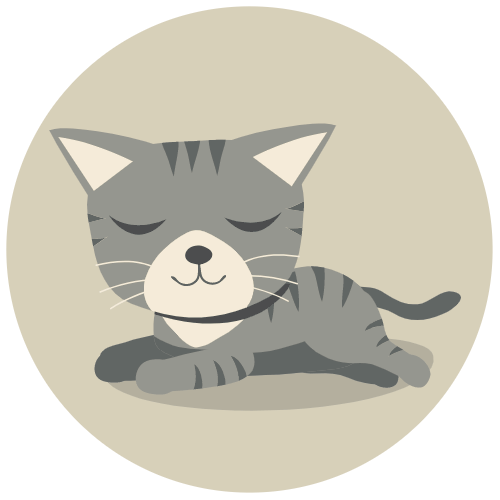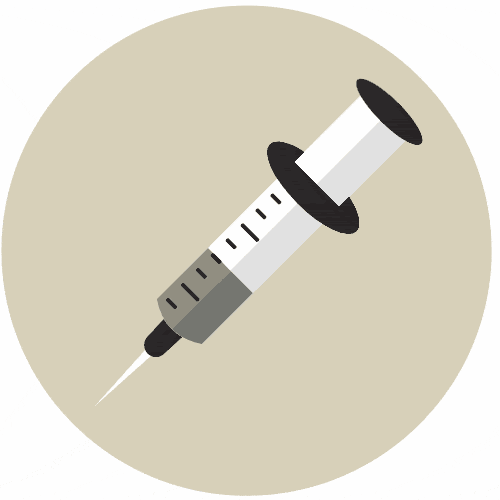Adding a puppy or kitten to your family can be exciting and stressful. Sunset Animal Hospital is here to help you with the process. For puppies and kittens, we generally recommend a series of three initial exams that are 3-4 weeks apart. Your veterinarian will provide a full physical examination to ensure that your new furry family member is developing and growing appropriately. They will also administer a series of vaccinations to build their immunity to life-threatening diseases.
Because puppies and kittens have an immature immune system, they will begin receiving a series of vaccines beginning at six weeks of age. You pet will then receive booster vaccinations until each series is complete. Your new puppy or kitten will also receive a series of deworming treatments and parasite tests to ensure their health and safety. Your veterinarian will discuss additional recommendations, such as heartworm and parasite prevention and at-home dental care.
Feel free to ask us any questions on how to care for your pet at home, from behavioral training to diet recommendations.
First Exams/Vaccines
EXAM ONE
Your pet’s initial exam will be performed the first time you bring them in to meet us. Typically, puppies and kittens come in for their first exam at around eight weeks old, but as long as your pet is under one year old, their first exam with us will be considered exam one.
Kitten Vaccines
- FVRCP (Feline Viral Rhinotracheitis, Calicivirus, Panleukopenia) #1
- Deworming #1
Puppy vaccines
- DA2PP (Distemper, Adenovirus, Parvovirus and Parainfluenza) #1
- Deworming #1
EXAM TWO
A recheck exam will be scheduled for your pet at 12 weeks old. This is an important exam to assess growth and ensure immunization of your pet.
Kitten Vaccines
- FVRCP (Feline Viral Rhinotracheitis, Calicivirus, Panleukopenia) #2
- Final Deworming
Puppy vaccines
- DA2PP (Distemper, Adenovirus, Parvovirus and Parainfluenza) #2
- Leptospirosis
- Bordetella
- Final Deworming
EXAM THREE
Our veterinarians will provide a third exam when your pet reaches 16 weeks old. At this time, all final vaccinations will be provided, and your veterinarian will discuss the next steps for care and treatment for your pet as an adult.
Kitten Vaccines
- FVRCP (Feline Viral Rhinotracheitis, Calicivirus, Panleukopenia) #3
- FeLV (Feline Leukemia Virus)
- Rabies
Puppy vaccines
- DA2PP (Distemper, Adenovirus, Parvovirus and Parainfluenza) #3
- Leptospirosis #2
- Bordetella #2
- Rabies

Spaying & Neutering
Depending on the breed and age of your pet, your veterinarian will suggest a plan for their spay or neuter procedure whenever is most beneficial for them. This conversation will usually take place during your pet’s final puppy/kitten exam, but we are happy to answer any questions you have prior.
The best times to schedule potty training:
- First thing in the morning
- Last thing at night
- After spending time in a crate
- Upon waking up from a nap
- After eating or drinking
- If time since the last break exceeds more than 2-4 hours
Tips for crate training:
- Place the crate near an exterior door for quick relief.
- Make sure the crate is big enough for your puppy to stand up, turn around, and lay down.
- Dogs like clean “home” areas and are less likely to have accidents in their crate.
Reinforcing good behavior:
- Don’t scold your puppy for having an accident.
- Praise your puppy for doing the right thing.
- Reward your puppy with treats, pats, and attention for wanted behavior.
Stopping unwanted behavior in your puppy
Chewing behavior:
- Chewing is a calming mechanism for dogs, it acts as a de-stressor and helps with anxiety.
- Keep chew toys around the house to encourage chewing on provided items.
- When your puppy starts to chew on toys, reward the good behavior.
Barking:
- Depending on the breed, many puppies will bark at animals, people, or what they sense as potential danger.
- Scolding your puppy when they are barking worsens the behavior. Instead, ignore the barking and praise your puppy when they are quiet.
- Training your dog to sit will help them fight the urge to impulse bark when asking for something.
Begging:
- Feed your puppy first before you eat so that they aren’t hungry.
- Create a “go-to” spot near the table where your puppy can be comfortable.
- Praise your puppy with treats away from the table when they don’t beg.
Feeding your puppy FAQs
How often should I feed my puppy?
- 6-12 weeks old: 4 times per day
- 3-6 months old: 3 times per day
- 6-12 months old: 2 times per day
- 1+ year old: 2 times per day
What food should I feed my puppy?
- Age and health-specific formulas
- Review AAFCO guidelines for essential nutrients
- Ask your veterinarian for individualized recommendations
What foods are harmful for dogs and puppies?
- Dairy
- Chocolate
- Grapes
- Sugary foods, snacks, or desserts
Supplies you should buy:
- Scratching posts (to help preserve furniture)
- Litter boxes
- Cat carrier
- Food and water bowls
- Stain and odor remover
Dangerous items in your home to keep away from your kitten:
- Toxic plants
- Cleaners and sprays
- Dog food
Keeping your kitten comfortable:
- Make sure to provide them with a comfortable place to rest, including a bed and blanket.
- Have small, cozy spaces available, like cat trees or window rests.
- Grooming supplies such as brushes and nail trimmers will help to get them used to grooming and prevent matts in their fur or overgrowth of their nails.
- Pheromone products are important when introducing a kitten to your home or to a new environment to help calm their nerves.
Playing with your kitten
Toys and playtime tips:
- Have plenty of toy options available for your kitten, such as balls, jingles, cotton chew toys, and anything on a string.
- Avoid playing with your hands to avoid this behavior when your cat is full-grown.
- Be sure to supervise your kitten when playing with string or toys with small pieces.
- Spend at least 20 minutes per day playing with your kitten, preferably twice daily.
Benefits of playtime for kittens:
- Spending time playing with you strengthens your bond and relationship.
- Playing allows them to release energy. If energy is not released, it can lead to unwanted behaviors such as damage caused to your furniture or aggression.
- Associating a new environment with positive interactions like playtime helps them to build trust and comfort.
HOW OFTEN SHOULD I PLAY WITH MY KITTEN?
- 20+ minutes of play per day
- Set aside at least two times a day preferably early in the morning and late at night
Feeding your kitten FAQs
How often should I feed my kitten?
- Have dry food only available at all times.
- Feed wet food only at least four times per day.
- If feeding a combination of wet and dry food, leave the dry food available all day and feed wet food twice daily.
What food should I feed my kitten?
- Age and health-specific formulas
- Review AAFCO guidelines for essential nutrients
- Ask your veterinarian for individualized recommendations
What foods are harmful for cats and kittens?
- Raw meats
- Eggs
- Raw fish
- Grapes
- Chocolate
- Dairy





